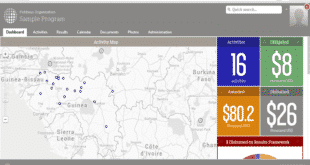I work at the bottom of the development food chain, on the ground where people benefit from the money that donors give. Some days I feel sorry for the donors because I see their money being wasted, stolen or misused. On other days I am frustrated by donor policies which make it very difficult to run …
Read More »Tag Archives: Financial Management
How to hire a consultant in development / aid
Consultants are often used for short term projects in international development / aid. Typical projects include needs assessments, evaluations, and report writing. A good consultant can be extremely valuable to your program. However, if a consultant is not hired and managed well the results can be equally disappointing (and very expensive!). …
Read More »How to write the sustainability section of a proposal
Sustainability is the nirvana of development. Everyone wants to get there but very few actually do. Most donors only want to fund projects that will be sustainable, so they include it as a section in their proposal template. Writing the sustainability section can either be very easy (if you just fill it …
Read More »How to close a project
International development projects can be closed for a variety of reasons. In the best case, a project will be closed because the problem it is trying to solve has been fixed. In other cases, a project could close because there is a lack of funding, the organisation no longer has …
Read More »Delivery Audit template
Most international development and aid programs involve deliveries of some kind. Relief operations deliver food, medical supplies, and other essential items to those in immediate need. Long term development programs often deliver equipment or supplies to government institutions, or even directly to participants – such as seeds for an agricultural program, or bed …
Read More »Receipt Audit template
There are three common ways that (apparently original) receipts can be used to hide fraud or theft on an aid program: Fake receipt: The company itself may be fake, or the person making the purchase may have created a fake receipt in order to keep the money. Altered receipt: It is possible that …
Read More »What is an Aid Information Management System (AIMS), and do you really need one?
As the rest of the world is moving towards big data and cloud computing, so too is the development community. An Aid Information Management System (AIMS) is the latest buzzword for a piece of software that stores data on all your projects, budgets, activities and indicators. What can it do? AIMS come in …
Read More »How to do a basic cost-effectiveness analysis
In international development / global aid programs, ‘cost-effectiveness analysis’ is a term given to comparing the relative costs of achieving the same outcome using different activities. For example, if a program uses one-on-one outreach to promote antenatal care for pregnant women, and another program uses mass SMS to do the same …
Read More »How to use root cause analysis to fix problems
All aid projects face problems at one stage or another. It could be that an employee stole money from the project, or that an activity kept running for years even though it was ineffective. It can be tempting to put these problems down to individual people. The employee was unethical, …
Read More »How to (try to) stop fraud on your project
Fraud and corruption in international development projects are often cited as a reason to stop giving aid. The UNDP broadly defines fraud as any act (or omission) to obtain a financial or other benefit or to avoid an obligation. This differs slightly from corrupt practices, which the UNDP understands to …
Read More »









